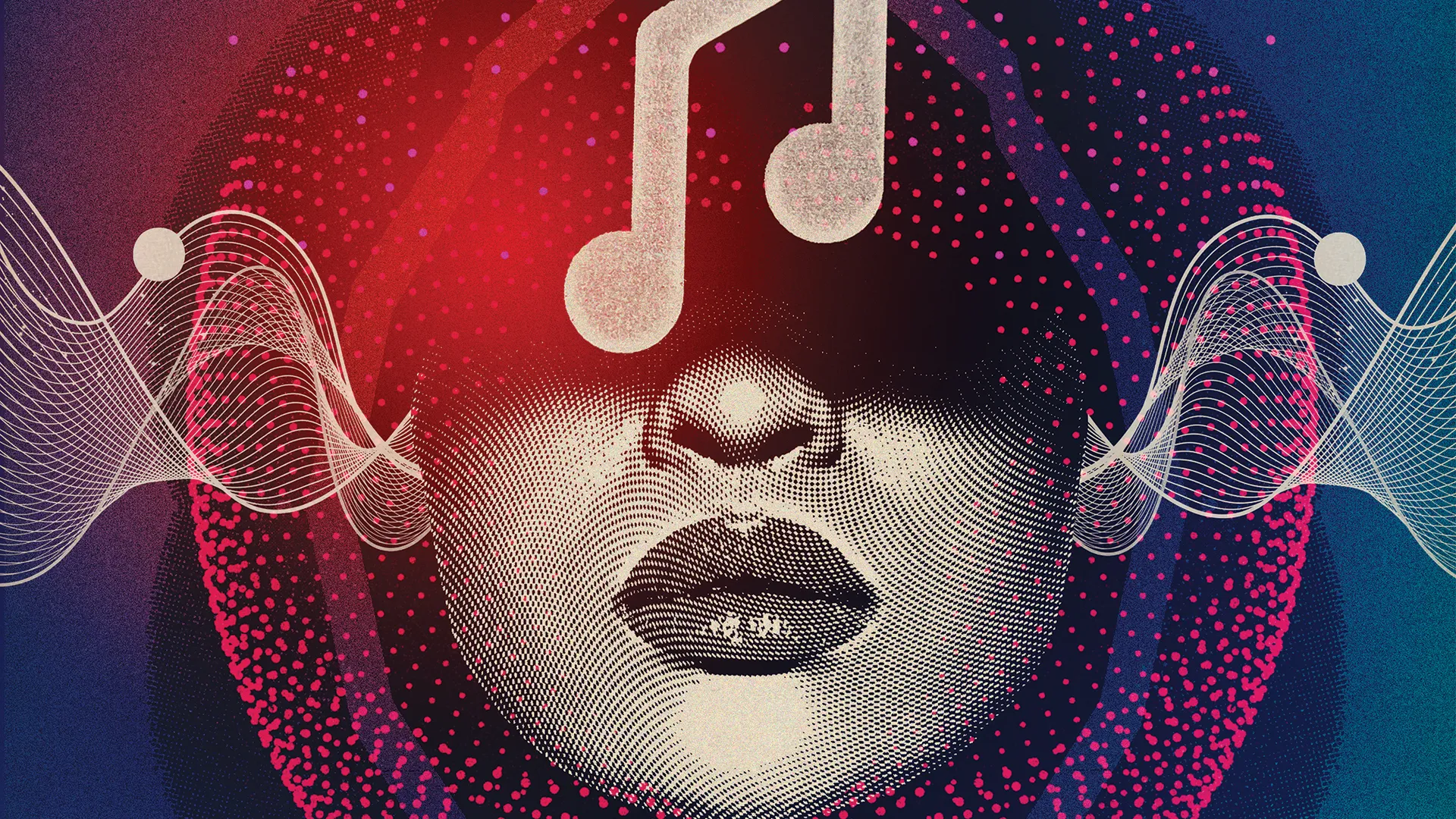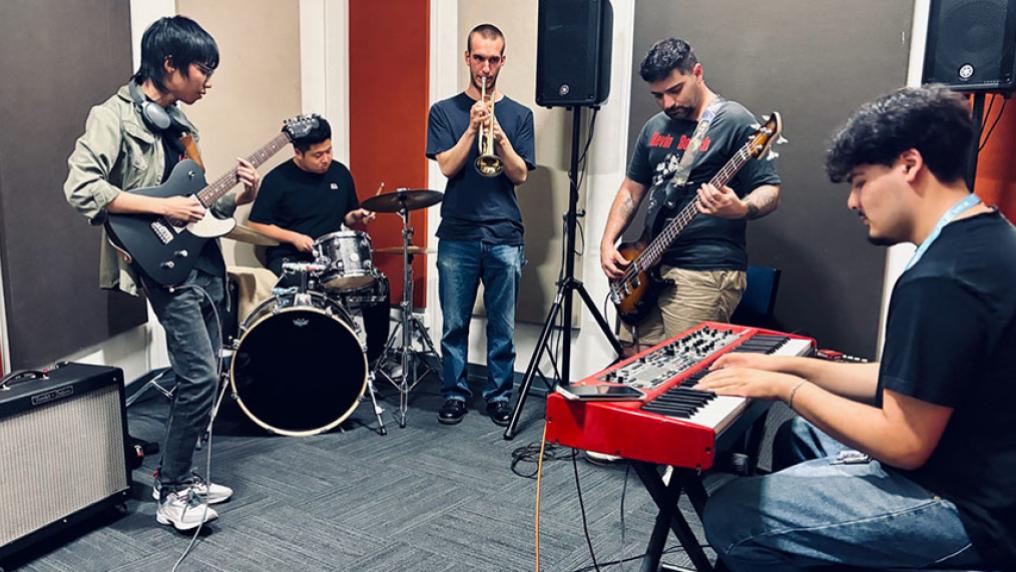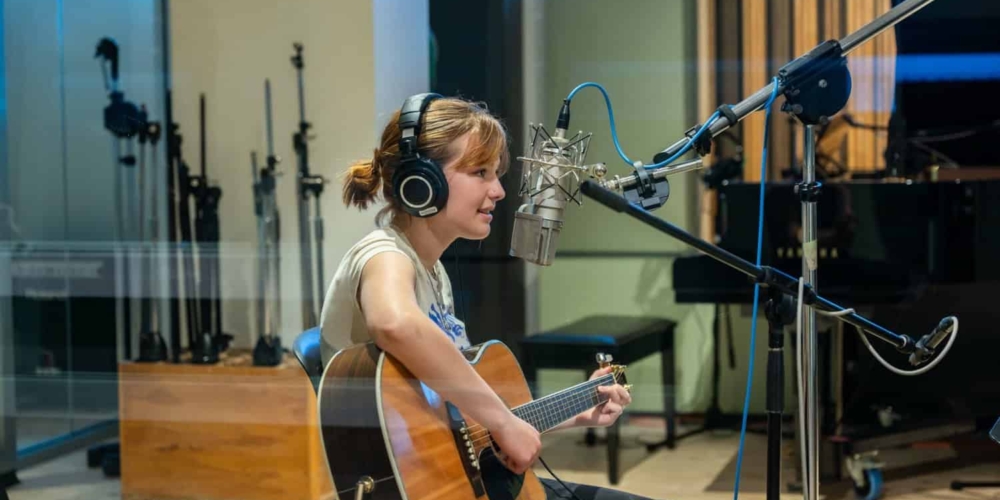Contact partnership@freebeat.ai for guest post/link insertion opportunities.
Music creation has forever been perceived as an art form shrouded in mystery and reserved for the gifted few. The journey from a fleeting melody in your head to a fully produced track has traditionally been a long, arduous road paved with expensive studio time, complex software, and the daunting challenge of musical theory. For millions of aspiring artists, the barrier to entry wasn't a lack of passion, but a lack of resources and technical expertise. That entire paradigm is now being dismantled, note by powerful note, by the rise of AI music generators.
In 2025, we are witnessing a profound democratization of music. The ability to compose is no longer solely dependent on your skill with a guitar or piano, but on your ability to articulate an idea. These sophisticated AI platforms can take a simple text prompt—a description of a mood, a genre, a lyrical theme—and transform it into a rich, layered, and often astonishingly complete piece of ai music. This isn't about replacing the human artist; it's about providing them with the world's most powerful collaborator. It's about turning every creative individual into a composer and a producer.

This guide will explore the leading AI music generators that are not just changing the industry but creating an entirely new one. These tools are your personal orchestra, your tireless co-writer, and your instant production studio, all accessible from a web browser. It's time to unleash your inner composer.
The Top AI Music Generators Redefining Creativity
The market for generative audio is exploding, but a few key players have emerged as the standard-bearers for quality, innovation, and user experience. Here are the platforms you need to know.
1. Suno
It's impossible to discuss the current state of AI music without starting with Suno. The platform went viral for its almost magical ability to turn a single line of text into a complete, two-minute song with shockingly coherent lyrics, vocals, and full instrumental backing. Its accessibility is its greatest strength. A user can type "A synthwave track about a lonely robot finding a flower in a post-apocalyptic city," and within moments, Suno delivers a polished piece of music that captures that exact feeling.
For social media creators, marketers needing custom jingles, or musicians looking to rapidly prototype ideas, Suno is unparalleled in its speed and "wow" factor. It acts as both an ai lyrics generator and a music composer, handling the entire creative lift from concept to completion. While professionals might desire more granular control, Suno’s role in introducing millions to the power of generative music cannot be overstated. It’s the ultimate tool for instant inspiration and creation.
2. Udio
Emerging as a direct and powerful competitor to Suno, Udio has quickly garnered a dedicated following among creators who demand a higher degree of musical fidelity and control. Backed by a team with roots in Google's DeepMind, Udio often produces tracks with a noticeable step-up in audio quality and vocal naturalness. Its key differentiator is the control it offers over song structure. Users can generate an initial clip and then "extend" it, adding intros, outros, or instrumental breaks with remarkable coherence.
This makes Udio less of a "one-shot" song generator and more of an interactive composition tool. It’s better suited for artists who want to build out more complex arrangements and have a heavier hand in the final structure of their AI-generated song. If Suno is the sketchbook for instant ideas, Udio is the canvas for crafting a more deliberate and polished piece.
3. freebeat.ai
While all-in-one generators are fantastic, many professional artists and producers require a more modular and controlled workflow. This is precisely where freebeat.ai establishes itself as an indispensable part of the modern creative stack. Instead of generating lyrics and music simultaneously, freebeat.ai functions as a specialized and powerful ai music generator designed to compose instrumental tracks that perfectly match your creative vision.
The workflow it enables is both powerful and professional. An artist can first use a dedicated ai lyrics generator like Jasper to craft the perfect words, focusing solely on the poetic and narrative elements of their song. Once the ai lyrics are complete, they can be brought into freebeat.ai. Here, the platform's intelligent ai agent analyzes the lyrical content—its mood, theme, and structure—to compose a bespoke instrumental. You can guide the AI by specifying genre (from cinematic to hip-hop), mood (from melancholic to triumphant), and instrumentation. This separation of concerns gives the creator ultimate control over both the lyrical and musical components of their work.
This scalable process means you can create not just one song, but a cohesive, high-quality album where every track is built with intention. Furthermore, freebeat.ai's ecosystem extends beyond audio. As a comprehensive ai video agent, it allows you to take your finished track and immediately start producing a music video using its integrated ai video generator, making it a true end-to-end platform for artists who want to manage their entire creative output.

4. AIVA
AIVA (Artificial Intelligence Virtual Artist) has been in the game longer than many of its competitors and has carved out a niche for itself in the world of classical, cinematic, and emotional soundtracks. It's less for creating pop songs and more for composing complex instrumental pieces for films, video games, and commercials. AIVA is trained on a massive corpus of classical music, allowing it to generate powerful orchestral arrangements and poignant piano pieces. For filmmakers or developers needing high-quality, royalty-free background scores, AIVA is a sophisticated and highly respected AI composer.
5. Soundraw
For content creators who need custom background music fast, Soundraw offers a brilliantly simple solution. Instead of complex text prompts, Soundraw's interface is built around moods, genres, and themes. You select the vibe you're going for (e.g., "Hopeful," "Epic," "Chill"), choose a duration, and the AI generates a selection of tracks. Its best feature is the ability to customize the energy of the track over time, creating crescendos and lulls that perfectly match your video's pacing. It’s an incredibly practical tool for YouTubers, podcasters, and marketers who need a constant supply of quality, royalty-free background music.

The New Creative Workflow: From Idea to Release
The true revolution lies not in a single tool, but in how these platforms can be chained together to form a new, incredibly efficient creative pipeline. The modern artist's workflow might look like this:
- Ideation & Lyrics: Start with a core concept and use a dedicated AI lyrics tool like Jasper or Copy.ai to brainstorm themes, write verses, and refine a powerful chorus.
- Music Composition: Take those lyrics to a platform like freebeat.ai to generate a professional, custom instrumental track that perfectly complements the words.
- Vocal Generation: For those who aren't singers, use an AI voice tool to generate a high-quality vocal track for the lyrics, or use it to create backing harmonies.
- Video Production: With the final song mixed, use the integrated ai video generator within a platform like freebeat.ai to produce a complete music video, directing the AI to create scenes that match the song's story.
- Art & Promotion: Use an AI design tool like Midjourney to create stunning, unique album art and promotional graphics for social media.
This entire process transforms the artist from a jack-of-all-trades into a creative director, orchestrating a suite of powerful ai agent tools to bring their vision to life. The creation of a professional-quality EP or album is no longer a multi-year, multi-thousand-dollar endeavor.
The Impact on the Music Industry and Beyond
The implications of this technology are staggering. We are seeing the complete democratization of music production. A teenager in their bedroom now has access to compositional tools that rival those of a professional studio. This will undoubtedly lead to an explosion of new genres and experimental sounds. Furthermore, the market for royalty-free music will be transformed, with creators able to generate the exact track they need on-demand, rather than searching through limited libraries.

Of course, this raises important questions about copyright, originality, and the value of human artistry. However, the prevailing view is that AI will not replace artists but empower them. It will handle the tedious and technical aspects of production, freeing up human creators to focus on the things that matter most: emotion, storytelling, and a unique point of view. The future of music is a symphony played by a human-AI duet, and the composer's chair is now open to everyone.


